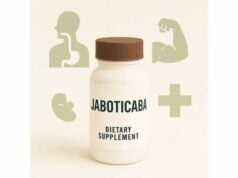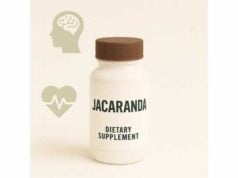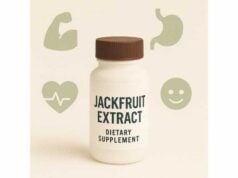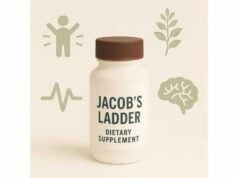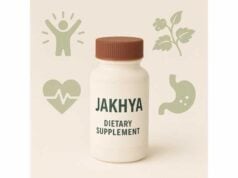
Jerusalem thyme—most often referring to Micromeria fruticosa (also known as white micromeria or “Israeli thyme”)—is an aromatic, mint-family shrub used across the Levant as a soothing herbal tea and a flavoring herb. Its leaves carry a bright, minty-thyme fragrance from volatile oils housed in tiny glandular hairs, while non-volatile polyphenols contribute to a gentle bitterness and antioxidant capacity. In kitchens, it’s a caffeine-free alternative to black tea; in folk practice, it serves as an after-meal digestif. Modern lab research explores antimicrobial, antioxidant, and enzyme-modulating effects of leaf extracts and essential oils. That said, human trials are scarce, so claims should remain modest: Jerusalem thyme is best framed as a pleasant, low-calorie ritual with plausible benefits, rather than a treatment. If you’re curious about adding it to your routine, this guide explains what it is, how it’s thought to work, practical ways to brew and cook with it, conservative serving ranges, and safety guardrails for specific groups.
Key Insights
- Aromatic leaf tea offers a pleasant after-meal ritual with gentle digestive comfort.
- Leaf polyphenols and essential oils show antioxidant and antimicrobial activity in lab studies.
- Typical tea: 1–2 g dried leaf per 200–250 ml water, steep 8–12 minutes, up to 1–2 cups/day.
- Avoid concentrated essential oils and high intake in pregnancy, breastfeeding, or with mint-family allergies.
Table of Contents
- What is Jerusalem thyme and how does it work?
- Benefits you can realistically expect
- How to use Jerusalem thyme day to day
- How much should you take and when?
- Side effects, interactions, and who should avoid it
- What the research actually shows
What is Jerusalem thyme and how does it work?
Jerusalem thyme is a common name for Micromeria fruticosa, a perennial member of the mint family (Lamiaceae). In the eastern Mediterranean, you’ll find it growing on sunny, rocky slopes; in home gardens, it’s prized for silver-green leaves and a clean, mint-thyme aroma. The plant’s culinary and tea uses center on the leaves and flowering tops, which concentrate both volatile and non-volatile compounds:
- Volatile oils (monoterpenes and sesquiterpenes) are produced in glandular trichomes—tiny secretory hairs visible under magnification. These volatiles give Jerusalem thyme its fragrance and, in test systems, often show antimicrobial or enzyme-modulating effects.
- Non-volatile polyphenols (flavonoids and phenylethanoid glycosides like verbascoside/acteoside) contribute bitterness, antioxidant activity in test assays, and likely much of the brew’s mouthfeel.
Because both groups dissolve, at least partly, in hot water, a standard infusion extracts a representative spectrum of compounds at culinary strengths. From a practical standpoint, “how it works” is straightforward:
- Aroma and temperature promote a soothing after-meal ritual that encourages slower sipping and mindful eating patterns.
- Gentle bitterness and polyphenols may support a sense of digestive ease for some drinkers.
- Volatiles and polyphenols display antimicrobial and antioxidant signals in lab models, suggesting everyday culinary relevance but not clinical potency at tea doses.
A key point: Jerusalem thyme is not the same as common culinary thyme (Thymus vulgaris), nor is it Syrian oregano (Origanum syriacum) often sold as za’atar. Local names overlap across the region; when possible, look for the botanical name Micromeria fruticosa (or the synonym Clinopodium serpyllifolium subsp. fruticosum) on product labels or nursery tags.
Benefits you can realistically expect
A pleasant, low-calorie beverage ritual. Most people use Jerusalem thyme as a caffeine-free tea that replaces sugary drinks or late-day caffeinated beverages. Swapping a 150–200 kcal sweetened drink for an unsweetened herbal cup can, over weeks, modestly reduce total energy intake without feeling deprived. The mild bitterness and bright aroma signal “finish” after meals, which some find helpful for appetite boundaries.
Digestive comfort for some drinkers. As with other mint-family infusions, a warm cup after lunch or dinner often feels soothing. The effect is more about the ritual plus aroma than high-dose pharmacology. If your stomach is sensitive to strong herbs, brewing lighter (0.5–1 g leaf per 250 ml, 5–7 minutes) keeps things gentle.
Antioxidant support in diet patterns (lab-informed). Hot-water extracts and alcoholic extracts of Micromeria species consistently show radical-scavenging and reducing activity in test assays. In real life, antioxidant benefits come from patterns—fruits, vegetables, legumes, spices, and teas—rather than single high doses. Jerusalem thyme can be one flavorful piece of that broader pattern.
Everyday microbial hygiene (culinary context). Essential oils from Micromeria species and leaf extracts inhibit growth of various microbes in vitro. While tea-strength infusions aren’t disinfectants, these signals align with culinary traditions that use aromatic herbs to flavor and help keep foods fresher. For home cooks, that means Jerusalem thyme pairs well with lemon, garlic, and olive oil in dressings and marinades.
Calm focus without caffeine. Many readers use a mid-afternoon cup for a reset—taste, aroma, and a few quiet minutes. If you’re caffeine-sensitive or cutting back late in the day, Jerusalem thyme offers a satisfying alternative with a clean finish and no jitters.
Set your expectations. Noticeable effects are subtle and behavioral—digestive comfort, a satisfying ritual, a helpful beverage swap—not disease treatment. If you’re seeking targeted outcomes (blood sugar control, lipid changes, anxiety reduction), choose interventions with human clinical evidence and use Jerusalem thyme for pleasure and variety.
How to use Jerusalem thyme day to day
Selecting plant material. Buy dried leaves and flowering tops from a reputable herb supplier. Look for a fresh, mint-thyme aroma and greenish color, not dusty or musty. If you grow the shrub, harvest in the morning once dew has evaporated, select healthy sprigs, and air-dry them in shade with good airflow before storing in an airtight jar.
Brewing fundamentals.
- Standard infusion: 1–2 g dried leaf per 200–250 ml just-off-boil water.
- Steep time: 8–12 minutes covered, to keep volatiles from evaporating; strain before drinking.
- Frequency: start with one cup daily. If you enjoy it and tolerate it well, many people settle at 1–2 cups/day.
Flavor upgrades and blends.
- A strip of lemon peel or a few fennel seeds amplify brightness and sweetness, respectively.
- Blend 50:50 with lemon balm for a softer, rounder cup, or with spearmint for a cooler profile.
- For a savory note, add a thin slice of fresh ginger during the steep and remove before drinking.
Culinary ideas.
- Herb oil: Warm 250 ml olive oil with a short sprig and a strip of lemon peel over very low heat for 10–15 minutes; cool, strain, and drizzle over grilled vegetables or fish.
- Marinade base: Whisk lemon juice, herb oil, garlic, a pinch of salt, and finely chopped Jerusalem thyme; toss with chicken or eggplant before roasting.
- Finishing salt: Pulse dried leaves with flaky salt; sprinkle on roasted potatoes or tomatoes.
Habits that help. Tie your cup to existing routines—after lunch, while preparing dinner, or as your screen-off cue in the evening. If you also drink coffee or strong black tea, shift one serving to an herbal cup to reduce late-day caffeine without feeling like you’re “missing” something.
Storage. Keep dried leaves in a dark, airtight container at cool room temperature. For best flavor, use within 6–9 months. If the leaf color fades to brown and the aroma drops, brew slightly stronger or refresh your stock.
How much should you take and when?
There is no standardized medicinal dose for Jerusalem thyme. Guidance below reflects conservative, culinary-level use informed by typical herbal practice and the plant’s chemistry.
Tea (infusion).
- Start: 1 g dried leaf per 200–250 ml water, steep 8–12 minutes, once daily for a week.
- Typical: 1–2 g dried leaf per cup, 1–2 cups/day as desired.
- Sensitive stomach: 0.5–1 g per cup, 5–7 minutes, and drink with a light snack.
Blends and strengths.
- If you like a brighter cup, blend 50–75% Jerusalem thyme with 25–50% lemon balm or spearmint.
- If the flavor is too assertive, shorten the steep or reduce the leaf amount rather than adding sweeteners.
Timing.
- After meals: Many people enjoy a cup 10–20 minutes after lunch or dinner.
- Afternoon reset: A mid-afternoon cup offers a caffeine-free pause.
- Evening: If fluids near bedtime disturb your sleep, finish the last cup 2–3 hours before lights out.
Extracts and capsules.
Commercial extracts of Micromeria fruticosa are uncommon and not standardized. If you encounter one labeled clearly as leaf extract, stay at the low end of the manufacturer’s serving range and do not exceed it. Because essential-oil–rich herbs can vary by region and harvest, avoid high-dose products without clear quality controls.
Essential oil caution.
Do not ingest Jerusalem thyme essential oil. Concentrated essential oils from mint-family plants can be irritating and, in some chemotypes that contain pulegone, potentially hepatotoxic at high doses. Culinary tea uses far lower concentrations and are the safer route for everyday enjoyment.
When to stop or step down.
- If you develop persistent stomach upset, mouth irritation, or an unusual aftertaste that bothers you, pause for a week and re-try at half strength.
- If you take time-critical medications, separate your cup by at least 2 hours (see safety section).
- If you’re pregnant or breastfeeding, keep intake to occasional small cups at most, and discuss any regular use with your clinician.
Side effects, interactions, and who should avoid it
Overall tolerance. At culinary amounts (one or two cups of tea), Jerusalem thyme is generally well tolerated by most adults. The most common complaint at stronger infusions is mild digestive discomfort or a resinous aftertaste.
Allergy and sensitivity. Jerusalem thyme is in the Lamiaceae (mint) family. If you have known allergies to mint-family herbs, proceed cautiously or avoid. Handling fresh leaves may cause mild skin irritation for a minority of people; gardening gloves prevent this.
Medication timing and absorption. Herbs can interfere with the absorption of some oral medications. Separate Jerusalem thyme tea from critical drugs (e.g., thyroid hormone, certain antibiotics, immunosuppressants) by at least 2 hours, unless your prescriber advises otherwise. Follow medication-specific fasting or timing instructions first.
Pregnancy and breastfeeding. Rigorous safety data are lacking. As a precaution, avoid regular use beyond occasional small cups during pregnancy and lactation unless your clinician approves.
Children. Prefer established pediatric herbs for routine use; avoid Jerusalem thyme unless a pediatric provider or qualified herbal professional recommends it for your child.
Liver or kidney disease. Individuals with significant hepatic or renal impairment should use only culinary amounts (if at all) and discuss herb choices with their care team, especially given variability in essential-oil profiles across regions and seasons.
Planned procedures. Stop non-essential herbs 1–2 weeks before surgery unless your surgical team says otherwise.
Driving and alertness. Jerusalem thyme is not sedating for most people. If any new herb makes you feel drowsy or “off,” avoid driving until you know your response.
When to seek medical advice first.
- You’re pregnant or breastfeeding.
- You take anticoagulants, antiplatelets, immunosuppressants, or narrow-therapeutic-index medications.
- You have significant liver or kidney disease.
- You have a history of strong reactions to mint-family plants.
What the research actually shows
Chemistry and plant anatomy. Studies of Micromeria species map a mix of monoterpenes/terpenoids in the essential oil and polyphenols—including verbascoside (acteoside) and flavonoids such as apigenin and kaempferol—in leaf extracts. The glandular trichomes on leaves are the oil factories, which helps explain why harvest timing and habitat influence aroma and potency.
Antioxidant and antimicrobial signals (preclinical). Multiple investigations of Micromeria fruticosa leaf extracts and essential oils report free-radical scavenging and broad antimicrobial activity in vitro, with potency varying by growing region and chemotype. Comparative work shows that oils from different locales can differ in their major constituents and, accordingly, their assay results—useful context for anyone noticing flavor differences between sources.
Food science angles. Beyond teas, researchers have explored using Micromeria ingredients in marinades and other culinary applications to modestly reduce oxidative by-products or inhibit microbial growth during preparation, again in controlled, lab-scale settings. These findings align with everyday kitchen practices—herbs, lemon, and salt as practical tools—without implying medicinal power from a home brew.
Cell models beyond microbes. Ethanolic leaf extracts have shown antiproliferative and pro-apoptotic effects in cultured cancer cell lines, along with enzyme-modulating activity in biochemical assays. These are mechanistic footholds for future research; they do not translate into clinical recommendations for prevention or treatment.
What we lack (and what to do meanwhile). High-quality randomized human trials testing Jerusalem thyme tea or standardized extracts for clinical endpoints are not yet available. Until those exist, responsible use stays culinary: brew a cup you enjoy, pair it with a balanced diet, and choose clinically validated therapies for medical needs.
Bottom line for readers. Jerusalem thyme shines as a flavorful, caffeine-free tea with lab-supported antioxidant and antimicrobial signals, best used as part of a varied, plant-forward diet. Keep servings modest, avoid concentrated essential oils, and personalize your routine with your clinician if you take prescription medications or have chronic conditions.
References
- Micromeria fruticosa Induces Cell Cycle Arrest and Apoptosis in Breast and Colorectal Cancer Cells 2020 (In Vitro Study)
- Screening of Antioxidant and Antimicrobial Activity of Micromeria fruticosa serpyllifolia Volatile Oils: A Comparative Study of Plants Collected from Different Regions of West Bank, Palestine 2020 (Analytical and Bioactivity Study)
- Chemical composition, antimicrobial activity, and antioxidant capacity of Micromeria flagellaris Baker and Micromeria madagascariensis Baker essential oils 2024 (Analytical Study)
- Essential Oils from Côa Valley Lamiaceae Species—Chemical Composition and Antioxidant, Anti-Inflammatory and Antimicrobial Arrangements 2023 (Regional Review Including Micromeria)
- Inhibition of Nε-(carboxyethyl)lysine and Nε-(carboxymethyl)lysine Formation by Micromeria fruticosa in the Marinade of Roasted Chicken 2024 (Food Science Study)
Disclaimer
This article provides general information and is not a substitute for personalized medical advice, diagnosis, or treatment. Do not use Jerusalem thyme to manage any medical condition without discussing it with a qualified healthcare professional. If you are pregnant or breastfeeding, have allergies to mint-family plants, live with liver or kidney disease, take prescription medications, or are preparing for surgery, seek medical guidance before using this herb. Stop use and seek care if you experience any adverse reaction.
If you found this guide useful, feel free to share it on Facebook, X (formerly Twitter), or your preferred platform, and follow us for more evidence-informed herbal and nutrition content. Your support helps us continue producing high-quality resources.

